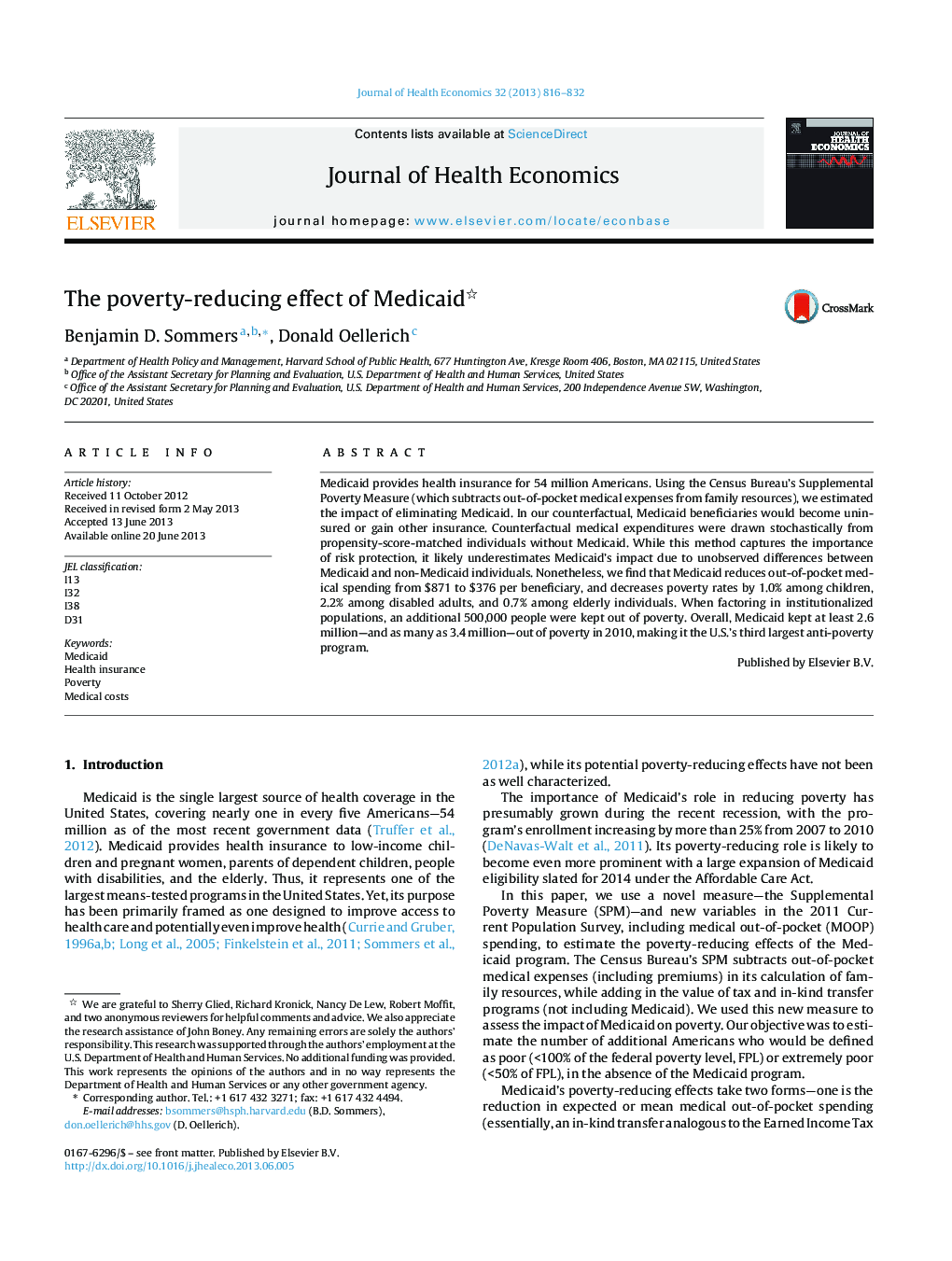| Article ID | Journal | Published Year | Pages | File Type |
|---|---|---|---|---|
| 10476739 | Journal of Health Economics | 2013 | 17 Pages |
Abstract
Medicaid provides health insurance for 54 million Americans. Using the Census Bureau's Supplemental Poverty Measure (which subtracts out-of-pocket medical expenses from family resources), we estimated the impact of eliminating Medicaid. In our counterfactual, Medicaid beneficiaries would become uninsured or gain other insurance. Counterfactual medical expenditures were drawn stochastically from propensity-score-matched individuals without Medicaid. While this method captures the importance of risk protection, it likely underestimates Medicaid's impact due to unobserved differences between Medicaid and non-Medicaid individuals. Nonetheless, we find that Medicaid reduces out-of-pocket medical spending from $871 to $376 per beneficiary, and decreases poverty rates by 1.0% among children, 2.2% among disabled adults, and 0.7% among elderly individuals. When factoring in institutionalized populations, an additional 500,000 people were kept out of poverty. Overall, Medicaid kept at least 2.6 million-and as many as 3.4 million-out of poverty in 2010, making it the U.S.'s third largest anti-poverty program.
Related Topics
Health Sciences
Medicine and Dentistry
Public Health and Health Policy
Authors
Benjamin D. Sommers, Donald Oellerich,
